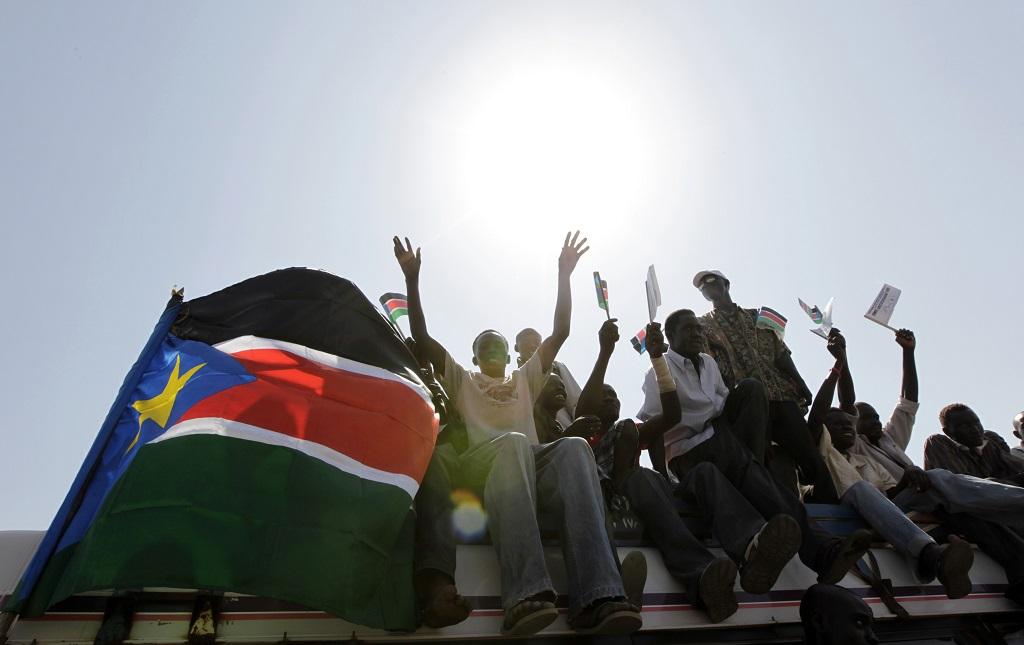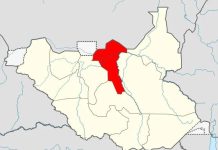Africa-Press – South-Sudan. The title of the opinion article suggests that democratic governance and dictatorial governance are different. One type may exist at a time and the other type at another. But the two types cannot be claimed to exist simultaneously, as either one of them contradicts the other, sometimes fiercely. That’s to say, one may be resident in a country where government of that state may be described loosely as democratic. Another someone may find himself or herself resident of a state where the government is referred to crudely as dictatorial. But it is possible to take place in the same country, at different times. An example is Sudan.
Whenever civilian politicians were in power in Khartoum, the governance instituted by them was called democratic governance: representative and limited governance, one of democratic attributes. When the military were in powers in Khartoum – Al Bashir’s regime – governments were referred to as dictatorial, as powers were usurped by force following military take over. Questions that the reader has to answer to satisfy the two classifications of types of government are many and will be set out under.
The answers will be provisional and contentious, but will provide indicators as to whether or not SS, at present or in the foreseeable future will be described as governed democratically or dictatorially. The article will provide four terms around which questions on governance will be addressed by the readers themselves in order to prevent claims of orchestration or misleading by the writer. The four terms are Absolute, from Absolutism; Democratic, from Democracy; Despotic, from Despotism; and Dictatorial, from Dictatorship.
The dictionary definition of absolute ruler, or absolutist ruler is a person, whether a monarch or not, who governed or governs a country or a state single handedly “having unlimited powers.” The governance is characterized by oppression and cruelty. Where opponents or those so perceived or those holding desenting opinions or stances were or are tortured or put to death without following due processes of the law.
Examples of rulers who were absolutists included, Qein Shi Huang; Genghis Khan (1206 – 1227); Queen Mary I of England; Czar Ivan IV (1533 – 1547); Maximilien Robespierre (1789 – 1794) ; Joseph Stalin ,(1922 – 1953); Pol Pot (1975 – 1979); Iddi Amin (1971 – 1979); Francois Duvellier of Haiti. Those absolutist rulers did not hesitate to kill persons claimed to be enemies to the rulers or to the state.
During Pol Pot reign more than 2.0 m people were executed, overworked or starved to death in Kampuchia (Cambodia). In Uganda more than 300,000 civilians and men and women in uniforms were massacred. There were and are more absolutist rulers who could be included. The question for the reader is whether or not there were or are leaders in SS who could fit into the definition of absolute ruler?
Rulers under democratic governance. Under this label, there were and are many who could claim the title ‘democratic’. Democracy is a kind of governance in which representatives is prevalent. All are offered the opportunity for participation. Decisions are taken from Bottom up rather than Top down. Equality, rule of law, separation of powers, respect for human rights and freedoms, Federalism and constitutionalism are the dominant characteristics of governance.
A dictionary definition of democracy is “a government in which power and civic responsibility is exercised by adult citizens, directly or through freely elected representatives. It rests on human rights, fundamental freedoms and Media freedoms,” it’s regulated by the rule of law not man or woman, and the separation of powers.
The importance of the rule of law is that “it promotes legal certainty, the security of legal expectations, and safety of the citizens from arbitrary interference by governments and their agents.” The question for the reader: does this kind of governance exist in SS today? If so then the rulers are advocates of democracy. You decide, objectively.
Despotism is defined as governance by “a ruler or person who holds absolute powers tyrannically, who exercises those powers in a cruel or oppressive way.” There were and are many rulers of this description.
A few examples will suffice: Caius Julius Caesar; Attila the Hun (AD 434 – 453); Abu Al Abbas Al Safah (Middle East); Friedrich Ii; Peter I; King Leopold of Belgium (1865 – 1909); Benito Mussolini (1922 – 1943); Adolf Hitler(1933 – 1945); Fransico Franco (1935 – 1975); Mao Zedong (1949 – 1976); Hafiz Al Assad in Syria; Ahmed Sekotore of Guinea; G. M. Nimeiri in Sudan; Augustino Neto of Angola; Diya Al Hag in Pakistan; Nicolae Ceausescu of Romania; Augusto Pinochet (1973 – 1990); Saddam Hussein of Iraq; M. Gaddafi of Libya; and many in your own time.
The reigns of those rulers and others were characterized by brutal, cruel and oppressive actions and policies. Pinochet was reported as having tortured more than 35,000 persons who were accused of opposing him or attempting to subvert the state. The crimes committed by Hitler, Mussolini, Franco and many despotic rulers are well documented, not to be repeated here, but the reader should bear that in mind when answering questions that may follow. Does SS need these kinds of leader? How can SS prevent or avoid the creation or emergence of rulers who are despotic? Is Despotism in – born or acquired? Your answers will light the path to democratic governance in SS.
Dictatorship is widespread across the world despite appearances of democratic governance. A dictionary definition of a dictatorial ruler is “a ruler or person with total powers over a country. Typically one who has obtained or occupied the country by force.” A dictator is a ruler who exhibit all the attributes of an autocratic ruler. He rules by decrees, whether or not there was or is a written constitution or convention that laid or lays down procedures for adoption of decisions and how they should be implemented.
The ruler did not or does not tolerate unsolicited advices. Even if solicited, the advice must coincide with the ruler’s expectations. No one was or is spared the whip for tendering resignation. Appointed officials or officers should be dismissed at the pleasure of the ruler. Cries of respect for fundamental human rights and freedoms were or are treated as cries in the wilderness. Or at the best cries full of fairy tales suitable for children’s books. No senior government officials travel outside the capital without a nod of head from the ruler. While travel outside the country by ministers must be preceded by sanctions from the ruler, otherwise the culprit would be slapped in the face before being unceremonially dismissed through announcement over Radio or TV.
At Cabinet meetings, the ruler has the last words, thereafter any contrary remarks or comments were or are treated as akin to insubordination, deserving harsh penalty. Indeed, a dictatorial ruler. God forbid. The question: is this depicks how SS rulers or political leaders act in the performance of their national or state responsibilities? What are the impacts of such actions on good governance?
Every country requires a leader, a political leader in matters of democratic governance. The leader that is needed should be a man or woman who believes in democracy and does practice it. He or she defends democracy and strives to promote and protect its foundations: human rights, fundamental freedoms and Media freedoms, the rule of law and the separation of powers.
He or she must insist on equality in spheres of governance. He or she should implement policies of distributive justice, due process of law, separation of powers organized by checks and balances. In this case the political system should be anchored in federalism. In that ways, socio – economic transformation will be achieved in SS and political stability and peace shall reign forever.
For More News And Analysis About South-Sudan Follow Africa-Press






